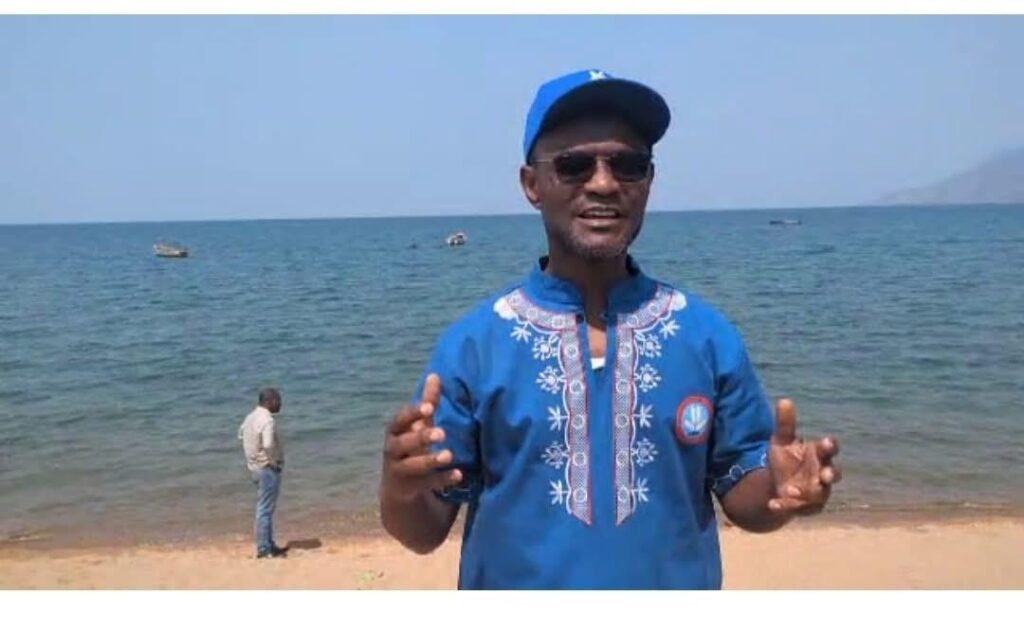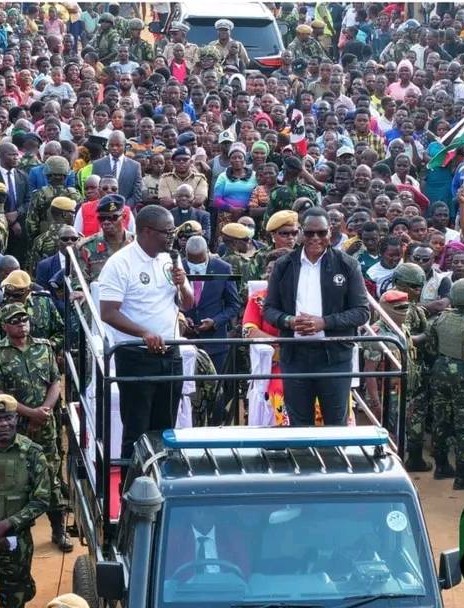Malawians are watching something unusual in this year’s campaign.
The Democratic Progressive Party (DPP) is running one of the most unusual campaigns in Malawi’s political history.
While President Dr. Lazarus McCarthy Chakwera of the MCP, Dr. Dalitso Kabambe of the UTM, and other contenders are criss-crossing the country holding rallies, shaking hands, and making promises, the DPP’s presidential candidate Arthur Peter Mutharika is holding remote controlled campaign from his Page House in Mangochi.
Instead of hitting the campaign trail, APM is holed up at his residence. In his place, senior party officials are doing the legwork, sometimes in ways that leave Malawians scratching their heads.

This week, the party’s Director of Political Affairs, Ben Phiri, travelled to Usisya in Nkhata Bay, where he had a rally and promised that the DPP would build a road linking Mpamba, Chikwina, and Usisya if voted back into power.
He also visited tourist sites. Interestingly, Phiri told the gathering that it was APM who has sent him personally to hold a rally in the area, visit the people and inspect areas the DPP would develop for tourism.
On the surface, this sounds like normal campaign work, inspecting infrastructure needs and making pledges.
But the problem is that it is being done by someone, in his own admission as a proxy, other than the presidential candidate himself, just weeks before the election.
In a high-stakes race, this is unusual and a political risk.
The question remains: Why would APM not take time to visit the people of Nkhata Bay personally just like Dr. Chakwera and Dr. Kabambe are doing?
People have been asking: “Where is APM?” Since appearing at the campaign launch at Njamba last Sunday, after skipping the manifesto launch earlier that same day, Mutharika has disappeared from the public eye. His official Facebook page has not been updated since July 30, when he posted about presenting his nomination papers to the Malawi Electoral Commission.
This absence is fuelling speculation about his health, stamina, and readiness for the demanding job of president.
The DPP and APM seem to believe they can run a “campaign by delegation”, sending lieutenants like Ben Phiri to different parts of the country while keeping the leading figure away from the exhausting grind of daily rallies.
Now this approach, of campaigning by proxies, raises important questions: If APM cannot travel and campaign on his own, how will he govern for the next five years? Can Malawians trust that he will be the one making decisions, or will power rest in the hands of those around him? Is the DPP hiding its candidate to avoid exposing signs of frailty or fatigue?

In politics, visibility is power. The absence of a leading candidate on the campaign trail creates an image problem. Voters see Dr. Chakwera, Dr. Kabambe and others sweating in the sun to win their support, while APM sends others to speak for him.
Ultimately, Malawians must decide if they want a president who campaigns through others, or one who can meet them face to face. The DPP may be betting that loyalty to APM’s past achievements will outweigh concerns about his present visibility. But in an election this tight, that is a gamble that could backfire.
For now, the DPP’s “campaign by proxy” is raising more questions than it answers and keeping alive the central question of this election: Where is APM?








